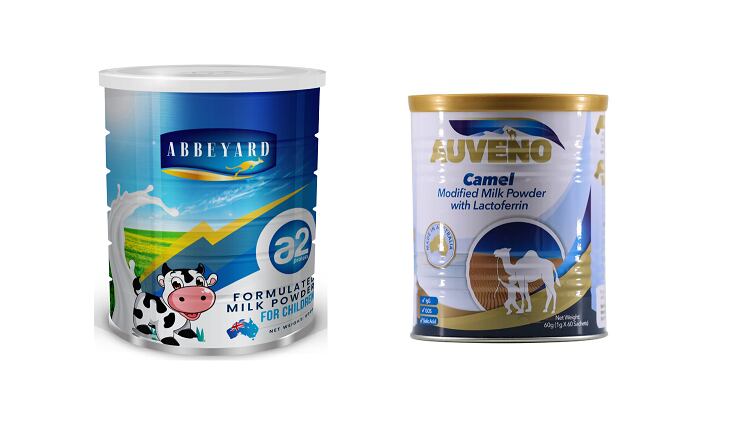Said to be the first-of-its-kind, one of the new products is a lactoferrin-enriched camel milk sold under the brand ‘Auveno’ for children.
Another product is an a2 milk powder designed for children 3 to 14 years old, it is sold under the newly developed brand ‘Abbeyard’.
Made in Australia, the products are sold both locally and in China.
“Consumers are starting to seek products that strengthen the immune system due to the COVID-19 pandemic.
“Last year, we launched our lactoferrin-enriched milk in China and in February this year, the sales of the product broke sales record,” Wilton Yao, managing director, told NutraIngredients-Asia.
He was referring to the sales of the firm’s Neurio lactoferrin milk powder range where sales skyrocketed to AUD$5.2m (US$3.3M), which was nearly a five-fold jump from the same period last year.
Asked how the a2 milk is different from the competitors, he said that it contained LGG probiotics on top of lactoferrin, providing added benefits.
At the same time, the firm is working with the University of Sydney in developing an anti-viral food supplement, with the process expected to complete next April.
Having acquired its own factory last October, the company expects to produce six million cans of nutrition products (ranging from 45g to 900g per can) per year once the second and third round of factory upgrades are completed.
Lower tiers cities’ charm
Besides the rising demand for immune-strengthening products in China, the company also identified the lower tier Chinese cities as being more profitable than the 1st tier cities.
“We have asked many Chinese distributors and private companies about the market and the feedback we have received is that consumers are happy to spend…They are looking for something that can provide better immune system.
“(In terms of infant nutrition products), the 2nd, 3rd , and 4th tier cities have reaped higher sales than the 1st tier cities,” Yao said.
This was because consumers from the upper tier cities face greater financial and mortgage pressure and hence have lesser spare cash on hand, he explained.
“At least 60% of our products sold are coming from the 2nd, 3rd, 4th tier cities. We are seeing little sales in 1st tier cities such as Shanghai and Beijing,” he said.
The potential of lower tier cities was also recently highlighted by e-commerce giant JD.com and market research firm Nielson.
In terms of the consumption habits, Yao said that consumers from the upper tier cities tend to buy online while those from the 2nd to even the 6th tier cities preferred buying from the mum-and-baby stores.
As such, the firm sells its products both online and offline in China.
For its range of products under ‘Abbeyard’, the firm has signed an exclusive deal with HIPAC – a key B2B platform for mother-and-baby care products in China – to introduce the products into stores such as Kidswant, Momtime, Redbaby by Suning, and Aiyingshi.
The latter plans to order AUD$4.8m (US$3.1m) worth of ‘Abbeyard’ a2 milk powder over the next 12 months.
SEA
Beyond China, the firm plans to venture into the South East Asian and Japanese markets in the upcoming 24 months.
“The economies and middle class population in these countries are growing rapidly and in places like Indonesia, there is a huge population,” Yao said.
While COVID-19 offers a good opportunity to launch immune-strengthening products, he added that the uniqueness of the formula is crucial to the success of the product.


